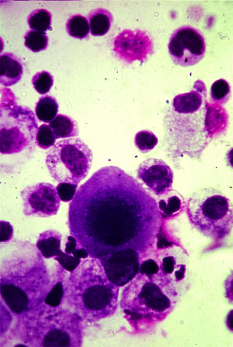Cell death tag found
 Australian researchers have discovered a key aspect of natural cell death.
Australian researchers have discovered a key aspect of natural cell death.
A new study has identified an enzyme involved in controlling cell death, which could offer another way to regulate the cell death process for inflammatory diseases like psoriasis and inflammatory bowel disease – conditions that occur due to excessive cell death in the body.
Inflammatory cell death is an important part of the body’s immune response. But when uncontrolled, it can lead to harmful amounts of inflammation in otherwise healthy organs and tissue, which fuels inflammatory disease.
In the new research, scientists found an enzyme known as tankyrase-1 uses a ‘sugar tag’ to prevent excessive cell death.
It is part of a protein called TNFR1, which exists on the surface of human cells and can induce a protein complex known to cause cell death.
Cells have many mechanisms to fight pathogens, which viruses try to interfere with in order to stay alive. Human cells will trigger the TNFR1 death complex if they can detect pathogenic interference.
Researcher Professor John Silke likened this to a ‘Temple of Doom’.
“Like how the ‘Temple of Doom’ tries to trap Indiana Jones, the virus is the less fortunate treasure hunter in this scenario,” he said.
“Our cells have evolved to the point where they will kill themselves when they detect a pathogen, to protect the body.
“Since pathogens such as viruses need a living cell to replicate in, the ‘Temple of Doom’ created by our cells is a very effective way to stop a virus infection in its tracks.”
The research team used mass spectrometry technology to identify the enzyme tankyrase-1 within the TNFR1 death complex.
It was already known that tankyrase-1 plays a role in fuelling cell growth, but the new study is the first to link this enzyme to TNFR1-mediated inflammatory cell death.
Tankyrase-1 attaches sugar molecules called ‘ribose’ to components of the TNFR1 death complex, which acts as a tag to trigger the removal of the protein complex. This sugar tag is essential to removing this complex and preventing excessive cell death.
Tankyrase-1 is also known to play a role in some cancers, with drugs that inhibit its function currently in pre-clinical trials.
Anti-tankyrase drugs might in future be specifically targeted to cancers that express TNF, as the drugs would then both stop cancer cells growing and trigger cell death to potentially make them more effective.








 Print
Print